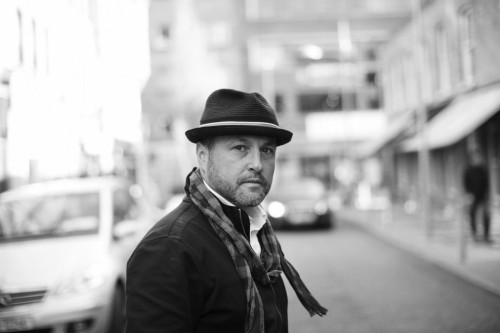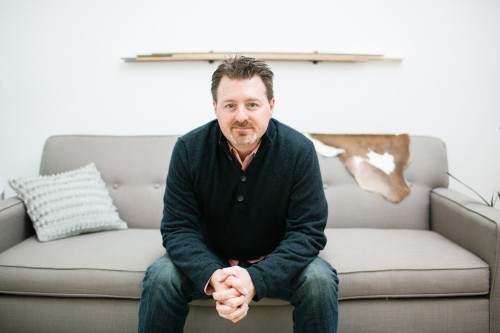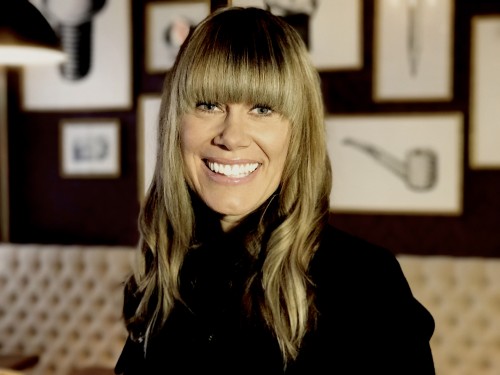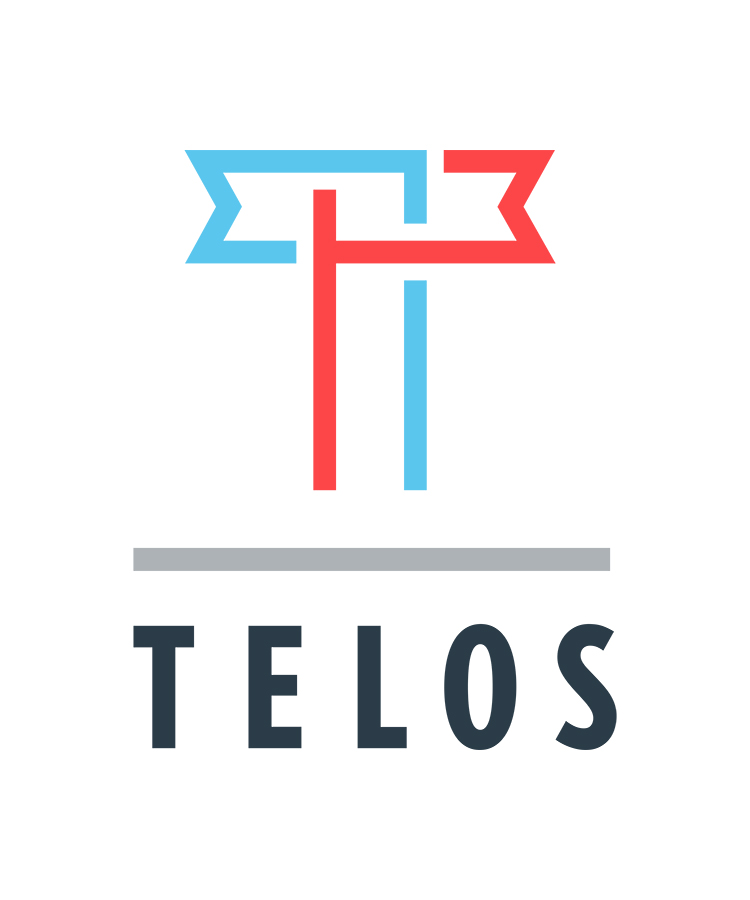Speaking in Hope
Speaking in Hope
The events of the last few weeks emphasize the need for the transformative work that we at Telos are doing with your help. Over the next year, Telos is working to create Pro/Pro/Pro communities in more cities and towns around the US. We’re also expanding the resources and programming that we offer you here in the US after you’ve returned from our trips and conferences. To accomplish these goals, we need your help.
Please consider giving to Telos this month to help meet our goal of $100,000. Whether it’s a gift of $10 per month, or $10,000, everything helps us as we grow this innovative community of peacemakers.
This month, we’re hearing from just a few of you, the Pro/Pro/Pro community, who are responding by giving, creating, and speaking into the world around them in hopeful ways. And this week, we want to listen to four members of our community—Colum McCann, Dave Davis, and Vickie Reddy—who’ve generously shared their views on why they speak in hope of a better future.
Portions of the following interviews were edited for clarity.
Colum McCann
Colum McCann is the international award-winning author of six novels and three collections of stories. He is also the co-founder of global story exchange organization, Narrative 4, which seeks “to achieve a sense of fearless hope through radical empathy.”
How did Narrative 4 start?
 I met with a group of twenty-four authors and activists in Aspen, Colorado in 2012. We were all brought together by the executive director Lisa Consiglio who had been working on the idea of story exchanges for many years. It was her vision. She brought these hearts and minds from all over the world together to share this simple but extraordinary idea that we are so much more than our own stories. It was her contention that we are in fact built out of the stories of everyone else too. The narrative of others—no matter how close or distant the “other” happens to be—becomes our own. Among the authors and activists was Greg Khalil—and we became fast friends. Other participants included Ishmael Beah, Assaf Gavron, Luis Alberto Urrea, Terry Tempest Williams, Tobias Wolff and Reza Aslan.
I met with a group of twenty-four authors and activists in Aspen, Colorado in 2012. We were all brought together by the executive director Lisa Consiglio who had been working on the idea of story exchanges for many years. It was her vision. She brought these hearts and minds from all over the world together to share this simple but extraordinary idea that we are so much more than our own stories. It was her contention that we are in fact built out of the stories of everyone else too. The narrative of others—no matter how close or distant the “other” happens to be—becomes our own. Among the authors and activists was Greg Khalil—and we became fast friends. Other participants included Ishmael Beah, Assaf Gavron, Luis Alberto Urrea, Terry Tempest Williams, Tobias Wolff and Reza Aslan.
We were all motivated from the very beginning. We were aware that the art of storytelling can in fact save lives. We now have participants in Ireland, Israel, Palestine, South Africa, England, Mexico and all over the United States
How does empathy build hope?
Radical empathy is the ability to step with agility and decency into the shoes of someone else. It is also the ability to find ourselves in the stories of others. Empathy builds hope because it expands the lungs of the world. We are able to see, feel and experience more. Also, radical empathy suggests that there is something more. It is not enough just to know the world—we have to change it too. We have to turn our radical empathy into action. I believe that Telos is a fine example of that philosophy at work.
How do you define hope?
Such a beautiful, simple, impossible question. I suppose I define hope as that which gives my head and my heart oxygen. I define hope as the ability to be open to criticism. I define hope as the ability to embrace failure. I define hope as the ability to question what others call the truth. I define hope as the ability to believe the unbelievable. I define hope as that tiny little back-alley dream that suddenly turns into a street, a town, a country. I define hope as the gut feeling that this world can be a better place. I define hope as the hope that I can continue to hope. I suppose I define hope as itself.
What gives you hope?
Telos gives me hope. Narrative 4 gives me hope. The Parents Circle gives me hope. The countless number of organizations who want to shift the world a little give me hope. The world is a good place. We have to hold onto the notion that we can bend reality towards justice.
Dave Davis
Dave Davis is the Executive Pastor at Parkview Community Church in Glen Ellyn, Illinois. He hosted Daoud Nassar, from Tent of Nations in the West Bank at Parkview in June. To listen to Daoud’s message that Sunday, click here.
Why did you decide to bring Daoud to Parkview?
 During our first trip to Israel/Palestine, we visited Daoud and his brother on the farm. For me, it was a significant part of the journey. As I listened to his story and the story of the farm, I was moved to tears by the injustice they have endured, but moved by the loving way they navigated their reality. When a person is faced with an injustice there are two options: to be filled with anger (righteous) or to be brokenhearted. In Daoud’s story, I was both.
During our first trip to Israel/Palestine, we visited Daoud and his brother on the farm. For me, it was a significant part of the journey. As I listened to his story and the story of the farm, I was moved to tears by the injustice they have endured, but moved by the loving way they navigated their reality. When a person is faced with an injustice there are two options: to be filled with anger (righteous) or to be brokenhearted. In Daoud’s story, I was both.
I wanted our church to hear his story. I wanted them to experience the range of emotions I experienced, but more importantly, I wanted our church to be moved by Daoud’s steadfast commitment to find a peaceful, love-first solution. My hope is we would be inspired and encouraged to live our everyday lives with the same commitment to love and peace.
How you decided to begin engaging with Telos—both personally, and then leading your church into engagement?
About 3 years ago, I was wrestling with how the Church was responding to the domestic issues unfolding in in the US. Race relations were in decline, ethnic division was on the rise, and the “us vs. them” rhetoric was permeating every conversation. Dualistic thinking was taking over, and it was impacting the Church. I saw the Church responding with a bunker mentality. We were digging in and building walls. The need to protect overpowered our ability to love. I asked a friend of mine how her church pushed against this trend. She said, “You need to go to Israel/Palestine with Telos, right now!” The Israeli-Palestinian conflict is the ultimate dual narrative. This is especially true in the Christian Church. We have made this “our fight to win” because we believe it has eternal and eschatological consequences. This way of thinking leads us to pick a side and ensure our side wins. My friend knew that if I could get a bunch of western evangelicals to see this conflict through a different lens, I could get them to see their neighbor differently as well. She knew looking into the eyes of people impacted by this conflict would breakdown our dualistic thinking and would allow us to see the world differently.
She was right, and I am eternally grateful.
How do you define hope?
Hope is the belief that God is in the business of making all things new. The message of God from Genesis to Revelation is one of restoration. Isaiah 43 says, “Behold, I am doing a new thing; now it springs forth, do you not perceive it? I will make a way in the wilderness and rivers in the desert.” The work of doing a new thing is a present-day reality, not a someday experience. It’s a work being done today, right now.
For me, hope means I see the world through the lens of restoration. God’s primary objective isn’t death and destruction, but restoration. He isn’t a judge waiting to convict me, but a loving father ready to restore and redeem my story. That is BIG. God is making a way in the wilderness AND rivers in the desert today, right now. He is doing this every day, in every place and for everyone. That’s hope.
What does hope look like in the context of the church?
Hope looks the same for the Church. When you view the world through the lens of restoration, it changes the way we interact with the world. The Church can BE the hope of the world. I am not sure we always believe that to be true. We grow comfortable and secure. Security and comfort make it nearly impossible to be bold. God isn’t about security and comfort.
Hope should expand our view of God. Hope should embolden the church to run toward hurt and pain. Because when we fully believe God is redeeming the stories of those around us, we want to be a part of it. Even beyond this, when we understand we, as humans, are God’s only tangible instruments on this planet for bringing about this redemption, we realize the cost of apathy is far too great. So we open up our minds, get to know our neighbors, give sacrificially—all the while trusting God to show up and advance good, right wrong, and draw people to Him.
Hope leads us to be a voice for the unheard, an advocate for the wounded and a defender of the persecuted. Hope give us the courage to love…everyone.
Does your understanding of hope affect how you lead your church?
Absolutely. I would say the primary impact is our push against dualistic thinking. We work hard to be a church that is “for” far more than it is “against.” We want to lead with love. The people I serve are true everyday peacemakers. They seek to know and love their neighbor well. It hasn’t been easy getting here, and we make a lot mistakes along the way, but through partners like Telos, we are learning. This approach has taken us into some difficult conversations and situations over the years, but it has been totally worth it.
What gives you hope?
My kids. I have two girls, 9 and 11. They are growing up in a world filled with people from every corner of the globe. Their friendships transcend differences and are built from a place of acceptance. My girls have friends who find God in mosques, temples, synagogues and even a few churches. They live open minded and open-handed lives. They have not yet developed a dualistic mind.They have not learned to see the world as winners or losers, right or wrong, in or out. They are peacemakers, and they give me hope.
Vickie Reddy
Vickie Reddy is the Executive Producer of The JUSTICE Conference, a Chicago-based organization that annually “gathers thousands of individuals around the world who share a concern for the vulnerable and oppressed.” She founded the Australian arts and faith organization SPARC, and is leading a movement to mobilize western christian churches to respond to the current Middle East refugee crisis.
Why did you initially want to get involved in big-picture issues with The JUSTICE Conference?
 In 2015 my husband Mark and I, along with our two daughters, moved to Chicago to take on leadership of The JUSTICE Conference—to be honest, I really had no idea what God had in store for us, or the importance of truly engaging with issues of justice, and how to actually do that.
In 2015 my husband Mark and I, along with our two daughters, moved to Chicago to take on leadership of The JUSTICE Conference—to be honest, I really had no idea what God had in store for us, or the importance of truly engaging with issues of justice, and how to actually do that.
Five weeks after moving to the US from Australia, I went on a Telos trip to the Holy Land, which set me up in so many ways for all that I was moving into. The people I met whilst on the Telos trip showed me that many different perspectives existed rather than just my own, and that genuine relationship with those who are different to me was essential in seeing the Kingdom of God manifest itself here on earth. I discovered that all that I thought to be good, normal, and true, was evidence of a white, western dominant cultural perspective and actually quite limited in its scope and understanding of a greater worldview, and indeed a bigger gospel.
Over the past two and a half years as I have engaged various issues of justice in my role leading The JUSTICE Conference, I have come to understand and believe deeply that the work of justice is central to God’s heart and to the gospel, and is a tangible manifestation of His Kingdom. Where justice is not present, shalom, or flourishing, is not possible—God’s desire for all of his creation is to flourish, to live in shalom. Seeking justice for all of humanity brings about this flourishing and results in the returning of creation back to God’s original intent.
What does hope look like in the context of your work?
I believe that the Bible is clear that those who are marginalized and oppressed are central to God’s story of restoration, and their voices must be amplified and listened to for there to be authentic transformation and genuine liberation from injustice; injustice which on the surface may appear to only affect the poor and the oppressed, but in fact affects us all.
Hope, for me in this context, looks like those who are in positions of influence and power starting to listen to and learn from those on the margins, those who have a different perspectives, worldview or theology, the poor and the oppressed. It looks like barriers and walls being broken down and relationships forming where previously there would have been division.
Hope, for me, looks like the systemic transformation and liberation of the marginalized and oppressed through authentic discipleship and the work of justice, where we are all individually brought closer to the heart of God and positioned in right relationship with one another, where our own brokenness is put in order.
What gives you hope?
Relationships give me hope. Learning from others gives me hope. I believe that as faithful followers of Jesus, our responsibility is to work alongside him—using our gifts, influence and privilege to promote the flourishing of all of creation. We cannot do this without humility and a willingness to learn from one another. I cannot fully understand injustice that I am not affected by, unless I first acknowledge the lens through which I view that injustice is biased toward my own limited experience. Relationships with those who are different to me show me another experience and a fullness of the gospel that I would not otherwise be exposed to.
What is the most impactful things you’ve learned from the stories and speakers at The JUSTICE Conference?
I think it would be that wrestling with justice issues requires hard work and a holistic understanding of the systems, institutions and structures that govern the society in which we live —as well as an understanding of the philosophies, theologies, and historical contexts which have enabled them to exist. That the work of justice is not easy or transient, it’s immersive and messy. And that it requires genuine humility and a willingness to listen.
My friend and 2017 Justice Conference Speaker, Sandra Van Opstal, talks about the need for proximity, solidarity and mutuality with others. I think when we truly understand these three things, we will be transformed ourselves, and then also able to engage in transformative change together.
The most impactful statement made on The Justice Conference platform for me, was Professor Soong-Chan Rah in 2015, when he said “If you are planning to go overseas as a missionary and you have never had a non-white mentor in your life, then you are not a missionary, you are a colonialist”. This statement continues to challenge me on who I am listening to and how my beliefs have been, and continue to be, formed.

